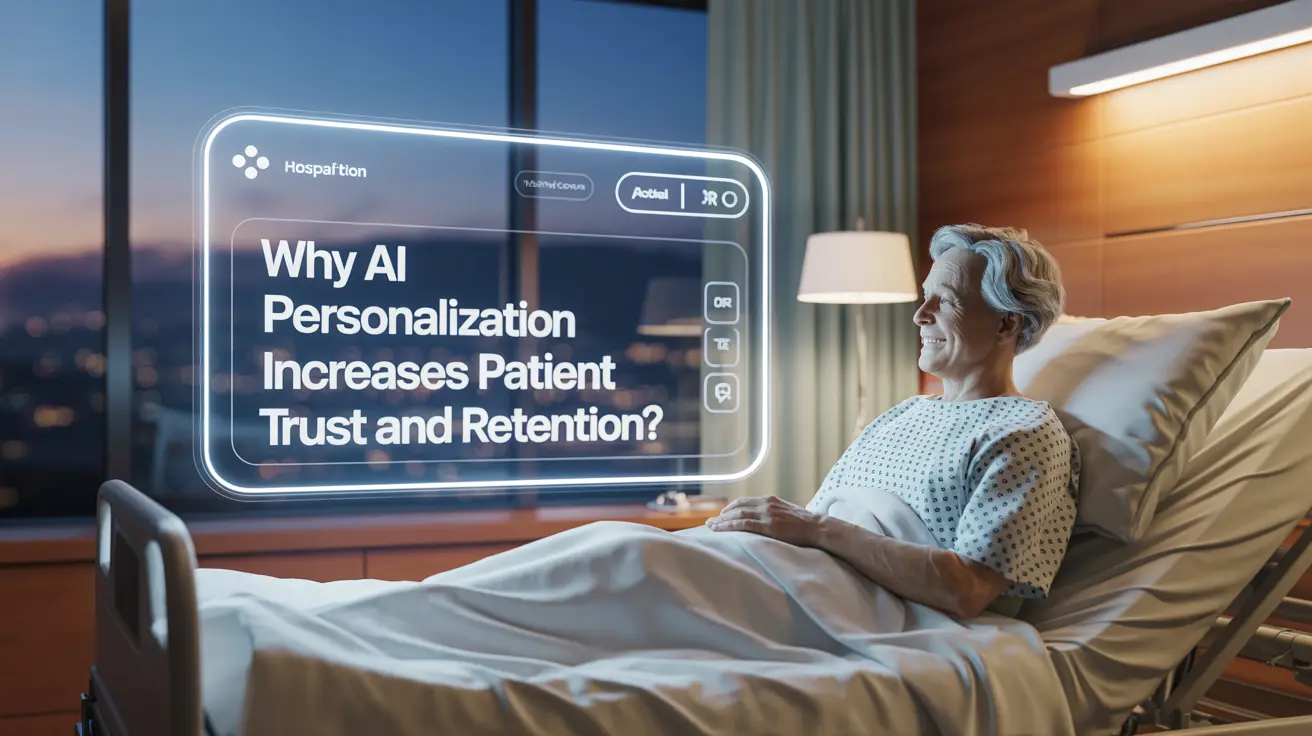Home / Blog / Why AI Personalization Increases Patient Trust and Retention ?
AI-driven personalization in healthcare is building deeper patient trust and improving retention rates. Learn how clinics and hospitals use AI to tailor care, increase satisfaction, and deliver better patient experiences with real-world examples.
18 Aug, 2025

Imagine walking into a clinic where the doctor already knows your health history, lifestyle patterns, and even your preferred communication style before you even say a word.
That’s not futuristic it’s AI personalization
at work.
And it’s changing the way patients trust and stick with their healthcare
providers.
Why Personalization Matters in Healthcare?
Healthcare is not one-size-fits-all. Patients want care that feels personal, empathetic, and tailored. When clinics provide this through AI tools, patients feel seen, understood, and valued directly improving trust and long-term loyalty.
AI Personalization in Patient Communication :
AI-powered chatbots and assistants analyze patient data to offer tailored responses and recommendations. Instead of generic replies, patients receive guidance specific to their health records, past queries, or upcoming appointments.
Real-world example:
Cleveland Clinic uses AI-driven personalization for patient communication,
ensuring patients receive appointment reminders, tailored wellness tips, and
follow-up guidance based on their conditions. This has led to higher patient
satisfaction scores. (Source: Cleveland Clinic)
Personalized Treatment Recommendations:
AI integrates EHR data, genetic information, and lifestyle habits to recommend personalized treatment plans. This reduces trial-and-error, builds patient confidence, and improves outcomes.
Real-world example:
Mayo Clinic leverages AI in oncology to personalize cancer treatment plans,
offering patients therapies best suited to their individual profiles. This has
helped in building stronger patient trust in precision medicine. (Source:
Mayo Clinic)
Building Trust Through Transparency and Accuracy:
When patients see that AI-driven insights align with their personal health experiences, it builds credibility. AI tools provide consistent and transparent data-backed recommendations, reducing medical errors and strengthening trust.
Enhancing Patient Retention with Proactive Care:
AI helps clinics predict patient needs before they arise. Whether it’s scheduling preventive screenings, reminding patients about medication, or sending wellness insights, AI ensures patients stay engaged with the clinic long-term.
Real-world example:
Mount Sinai Health System uses predictive AI to identify at-risk patients and
personalize preventive care outreach, resulting in better retention and
improved health outcomes. (Source: Mount Sinai)
Emotional Connection and Patient Loyalty :
At the heart of healthcare is human connection. AI enables providers to focus more on patient interactions while automating background tasks. When patients feel cared for and remembered, they naturally stay loyal.
Conclusion: Personalization is the New Trust Currency in Healthcare :
AI personalization is no longer a luxury it’s a necessity for modern clinics and hospitals. By offering tailored care, proactive communication, and transparent recommendations, AI strengthens patient trust and boosts retention.
Clinics that embrace AI personalization aren’t just improving efficiency they’re creating lasting relationships with patients, which is the true measure of healthcare success.